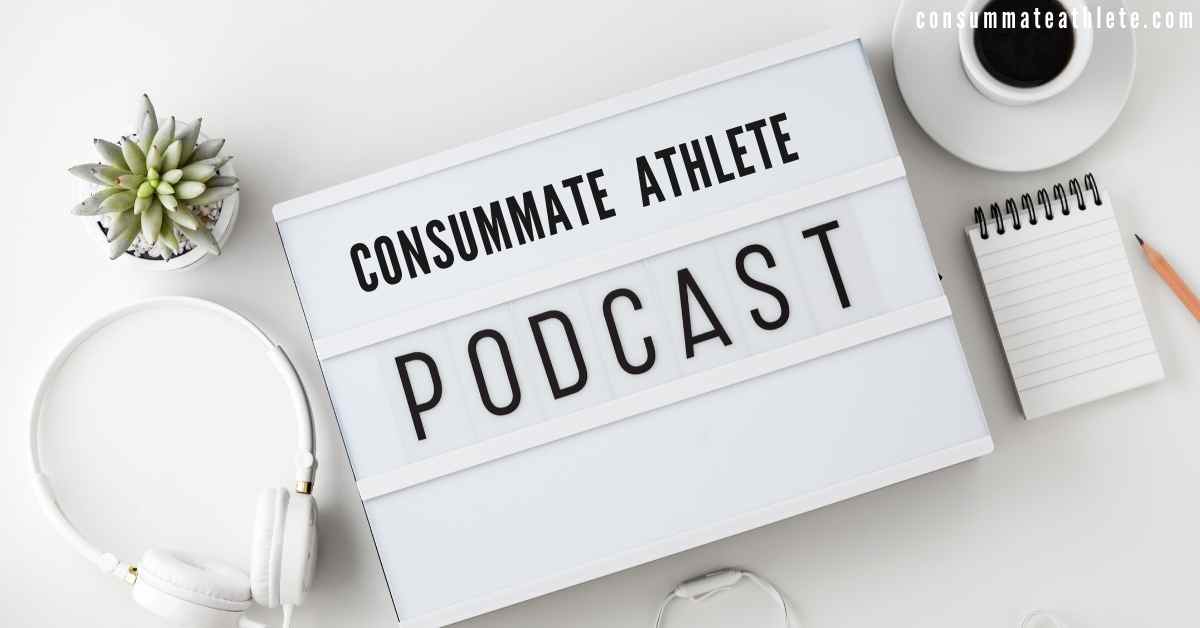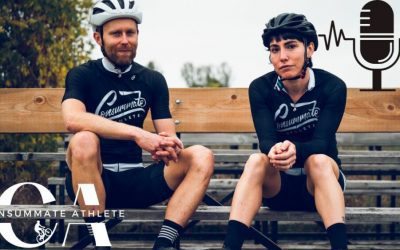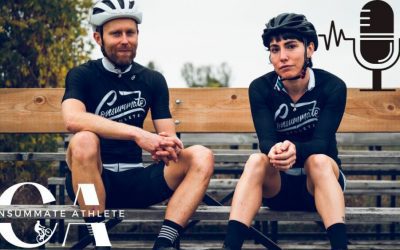Avoid Testing-Day Nerves, Training for older athletes, Weight-Loss
This week we talk to Tracey Drews, a coach with CTS. Tracey works with athletes of all types but has had great success with masters athletes who aim to pursue peak performance in their sport. There are topics for all athletes this week including beating testing nerves, how to loose weight, and how to become a coach.
Don’t forget to check out www.wideanglepodium.com for show info, other podcasts and to see if becoming a donating member of the network is for you.
Our Take-A-Ways:
- Use multiple sports to balance your week and achieve more movement
- Even athletes who are retired from work have limited time to train
- Intensity is NEEDED is still GOOD after we age
- Consider barriers to goals and other commitments when making goals, setting time available to train
Links and Media Mentioned
Show Notes:
1) BIO
Tracey details her transformation from over-weight but active high-schooler to endurance athlete after undergraduate studies. Her transformation led to interest in exercise science and wellness as a graduate degree. She has worked as a personal trainer in private and national chain clubs and for the US military in Germany . She has worked with CTS for 10 years coaching and guiding clients to spectacular lifelong goals.
Athletically she has completed sprint triathlons, local and national cycling individual Time Trials and team time trials. She mountain bikes for 3-6 hr races and also does gravel grinders and sprint distance duathlons. She still love playing tennis and hikes the beautiful Appalachian mountains around Asheville, NC. Sea Kayak and golfing rounds out her Consummate Athlete lifestyle! As a teen she also did Shot-Put.
Throughout the years after graduate school I worked as a personal trainer in private and national chain clubs as well as civil service for the US military in Germany at an Air force base as well as Yokohama, Japan US Naval base. I will be starting my tenth year in October as a coach for CTS and absolutely love the process of coaching and guiding people to achieve some pretty spectacular lifelong goals . . .
2) Tracey works in Asheville for CTS Coaching. You can listen to our podcast with her co-hort ->
Josh Whitmore HERE3) can you tell us a bit about your own athletic experience. What did you do as a kid, thru school, into adulthood.
( inactive youth // then baseball as teen // not much running (throw discus-shotput) // tennis early on (social/intermural) // college life (stress / way from hme
4) Your weight loss after university. What changes did you make (food vs. exercise?) and over what period did it all happen? Why did you change your routine?
-> weight-loss as goal – have other goals, why are you doing it?
-> tactic to loss weight (mantra for athletes) variety, balance and moderation —- fuel your race car
-> food diary to see what eating – 3 to 4 days (with weekends) ==
-> emotional eating ->
5) Education = where did you go, what have you studied, what courses/certs ?
-Virginia tech (graduate 182 – ACE cert for prep – CEC for USAC – focus on athletes and practical
6) Personally, you do multiple sports – how do you approach learning these new skills? (i.e. how do you learn to play tennis while still participating in all your other sports!!??!)
7) What type of clients do you coach ? (age / sport / goal to win or participate or finish?)
– coaching athletes 40+ doing
– Time crunched due to other activities, even if retired from work athletes often have multiple commitments and limited time to train in ‘main’ sport
8) Successful strategies you use for those under 45 versus over 45 ? Perhaps a different split / division you see ?
9) Intensity is typically something that older athletes shy away from. Do you think this is the way it should be ? ( In Ontario mtb 65+ masters actually do shorter race and they dislike the ‘sprint’ )
– it is Dependent on athletes but do use resistance / circuit training for overall well being and likely for cycling performance
–
10) What would a normal training week look like for someone 45+ looking at single-sport racing for road/tt
-> generally more recovery days ( work on flexibility, coordination , balance ) ** so tennis or similar may play a role
-> look at goal b) look at time to commit c) look at other actives and how much take away ( specificity of training)
-> try other activities to balance mind / body => VARIETY
-> find something you enjoy doing and include !!
-> a month or two out doing circuits 2x a week for up to 1-2 months out . (30min for 2 days a week )
->
11) Does variety in training for those older athletes become more important ?
– need to help with balance
– use it or loose it … do you want that range of motion for activities of daily living .
12) Do you have any examples to illustrate a master’s training / doing awesome things at older age?
-> 72 year old doing cross-country tour
-> setting sub-goals
13)
Joe Friel’s Fast after 50 = great resource = high intensity and strength ( LINK TO BOOK)—> check in with doctor but generally we should be doing speed work / intervals to maintain vo2 / fitness
—> Peter talks running uphill to help vo2 (as per this book)
—> Tracey says -> to push above goal time/power — toe the line get cross-eyed
14) testing – People get nervous
-> testing as a mental test / anxious test – routine test
-> establish the routine …. physical practice only part
-> don’t fear the test !!!
15) Are there any common themes you see in those amazing athletes who seem to race much ‘younger’ then their age ?
– desire to do well , to excel , to go outside comfort zone,
– friel alludes to body may fade in later years but the wisdom / mental fortitude over comes physical
– rest and recovery is important /
– have goals
– social experience / enjoy and enrich the journey




